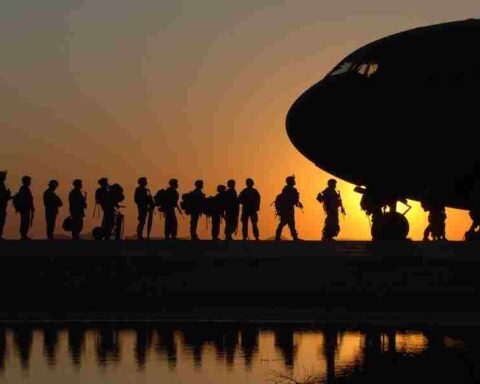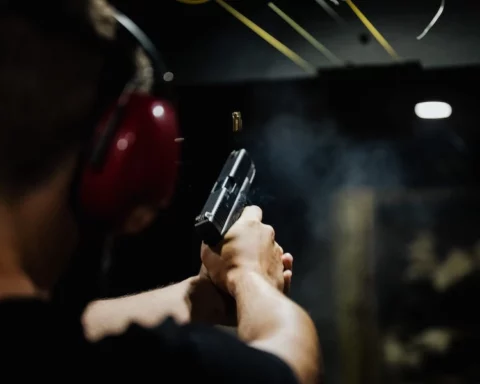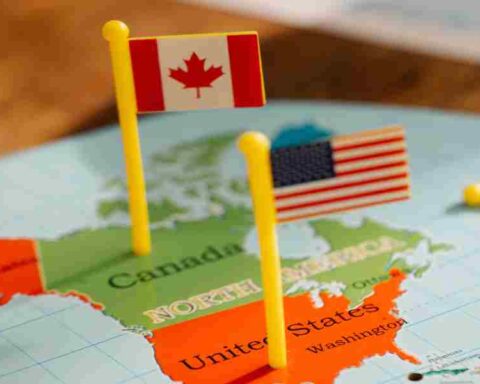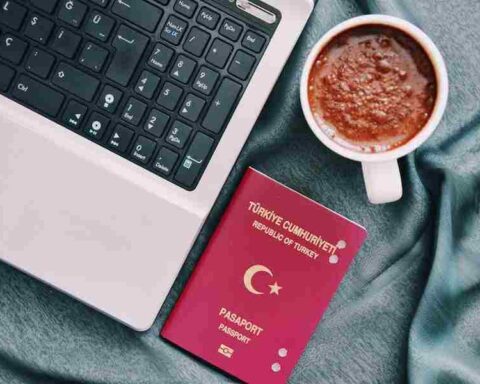Search
About Us
Follow
Signup to Newsletter
Get our regular posts notification, just subscribe our newsletter and keep reading.

Does TSA Check Immigration Status For Domestic Flights

As an immigrant living in the United States of America, you’re well aware that any attempt to leave the country via any of its airports means you will encounter airport security.
Getting through airport security is one of the embarrassing moments when traveling by air. You’ll have to wait in long queues and have your baggage checked by airport security.
It could get worse if you’re an immigrant. The TSA would have to confirm your immigration status before letting you go. If they suspect foul play, they’ll hand you over to Customs and Border Protection (CBP).
Now, the question is, do they check for immigration status for domestic flights? Here’s what you need to know.
Does TSA Check Immigration Status For Domestic Flights
Firstly, TSA is not CBP. So, they don’t check immigration status. But this doesn’t mean they can’t, if they want to.
What the TSA does for a passenger is to verify that their ID is valid, ensure the name on the ID tallies with the name on the boarding pass, and check the boarding pass to see if there are any TSA codes.
However, if the TSA suspects you’re an illegal immigrant, they can question and detain you, pending when the CBP arrives.
9 Mistakes You’re Making That’s Causing TSA To Check Your Immigration Status Regularly
If you’re tired of the frequent immigration status checks at the hands of the TSAs, you could be partly at fault. You’re tipping airport security without knowing.
Below are several mistakes you’re making that are causing TSA to run avoidable immigration checks on you.
1: You’re acting nervous:
If you’re sweating profusely and showing signs of anxiousness when you come across TSA, you’re giving the airport security personnel more reason to screen you thoroughly.
These airport security personnel are well-trained. They can detect when something is right and when it’s not.
The TSA undergoes a training program called Behavioral Detection. The training helps TSA agents study each passenger and compare them to an established behavioral baseline.
Here is how they determine nervous and high-risk passengers:
- You have a pale face
- You’re wringing or robbing your hands.
- Your eyes are widely opened, and you’re stirring in every direction.
- Excess throat clearing.
- Exaggerated yawning
- Body odor that tells you’re nervous
Airport security uses these established behavioral patterns to help identify and isolate high-risk passengers. Unfortunately, many innocent people who might be reacting to stress or dealing with anxiety issues fall victim.
You have to work on your composure when going through airport security. Please don’t give them unnecessary attention to delay your flight and cause further stress.
#2: Traveling with a large quantity of powder:
The last thing you want is to trigger airport security. When you do, you’ll be the one that will waste precious time.
How do you avoid triggering TSA? Don’t travel with a large quantity of powder. Or, you can even forget about carrying it.
The powder can trip up the system in an airplane. Why? It is one of the ingredients used in making explosives.
Here’s how to manage this situation. Ensure your powder is below 12 ounces. And double bag your powder too.
Note that the TSA might not be satisfied with this. Thus, they may want to conduct a special test on the powder to ensure it doesn’t pose any threat.
But if you keep the quantity below 12 ounces, TSA might not bother you.
#3: You’re carrying large hairspray canisters:
What you carry in your baggage will determine if you’ll spend more time with the TSA or get your immigration status and other things about you checked.
How do travelers draw attention to themselves? The mistake many make is trying to transport large aerosol cans. The FAA and TSA are heavily against these flammable materials. So, they may restrict you from carrying it.
However, you can transport aerosols like hair spray; no one says you can’t. Just ensure you’re carrying a smaller container. It should be 3.4 ounces or less.
Another mistake people make when carrying aerosol cans is to leave them open. If you forget to put the cap on the can, the TSA will confiscate it.
#4: Your ID problem:
You must stay in TSA at the airport. They’re always there. So, the best thing to do is to carry a valid identification, such as an ID. You can bring your driver’s license or password.
What happens if you can’t access both IDs? Then you can use other forms of identification. However, remember that your inability to provide TSA with a valid means of identification will force them to check your immigration status and other things about you.
TSA will run a thorough background check on you. And if a warrant of arrest has been issued against you, the TSA agent will spot it in the background check.
#5: You’re traveling with a toy gun:
If you don’t want the TSA to suspect and request a background check, watch what you bring to the airport.
When traveling with your family, you must pay close attention to the kind of toys your kids are taking with them. Find out if the toy they’re carrying will trigger TSA.
One of the toys you must avoid is a toy gun. To you and your kids, it’s just a gun. But the TSA agent viewing the X-ray screen won’t see the toy that way.
So, if you don’t want TSA to waste your time conducting unnecessary immigration checks on you, mind the items you take to the airport.
Check the items your kids are carrying to ensure they’re not something that will trigger the TSA.
#6: Transporting sharp objects:
Are you planning to carry your pocket knife or razor on your next trip? If yes, you should prepare for a meeting with the TSA agents at the airport.
The TSA doesn’t allow safety razor blades. The only blade they allow is the disposable one. So, your blade will be confiscated if it’s not disposable.
Does TSA permit pocket knives? No, they don’t. Most countries may allow passengers to travel with pocket knives, provided it stays under the blade limit.
Unfortunately, the TSA doesn’t allow any form of pocket knife, whether short or long.
#7: Transporting liquid foods:
If you’re planning to transport liquid foods, understand one thing: the TSA isn’t against such items. However, your food must remain in the container. And the container should not exceed 3.4 ounces.
When transporting frosting containers, ensure they are at least 3.4 ounces. The TSA may ask you to throw them away if they exceed the size of the container.
#8: You dressed uncomfortably:
Do you have TSA PreCheck? If you don’t, prepare for the worst at the airport. You may have to remove your shoes, outerwear, and belt when going through security.
You might not find PreCheck when you travel overseas. So, prepare yourself for even circumstances. Endeavor to dress comfortably and avoid strappy shoes.
Wear shoes you can take off quickly because you might need to take them off at the airport.
#9: Failure to interact with TSA before traveling:
Failure to pay attention to TSA when packing your stuff can hurt you. You don’t need to interact with a TSA agent. Instead, you can visit their website. Learn about the things you can and can’t carry.
The TSA website contains a section containing the question, “What can I bring.” Here, you’ll discover items you can and can’t bring. Plus, this page tells you things that need to be in a checked bag and those you need to put in a carry-on bag.
Conclusion
So, does TSA check immigration status for domestic flights? The answer is no. However, the fact that they don’t doesn’t mean they can’t.
The TSA’s primary focus isn’t to check passengers’ immigration status. But if you act suspiciously, they can detain you and alert CBP.
We also discussed ways that you might be tipping TSA without knowing. Among them is when you act nervous. You’re nervous is sending the wrong signal that something is suspicious about you.
The item you travel with, your dressing, composure, and ID problem can tip off TSA.
Share Article
Susan Tapia is an ambitious, savvy news writer with a vibrant personality and an eye for detail. She is highly experienced in crafting compelling stories and dedicated to seeking out the truth. With her inquisitive nature, she delves deep into every subject she touches, uncovering unexpected facts that help her engage her readers. Susan has an unbridled passion for writing, and she strives to inspire others through her work. She confidently shares her thought-provoking ideas with enthusiasm and candor, making sure the world can see the truth no matter how uncomfortable it may be. Simply put, Susan Tapia is a trailblazer in the journalism industry who never fails to deliver her readers riveting stories they won't soon forget.

























